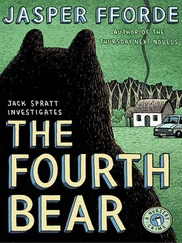“Welcome back, Detective Next. When I said Smalls was the gold standard, my comment may have been taken out of context. I really meant that she met the high standard set by your reputation.”
“You’re a terrible creep, Sergeant.”
“Thank you, ma’am.”
“Is the shrink in his usual room?”
“They moved him to the first floor,” said the officer. “Room 101. Another high-ranker is with him at the moment. We had Officer Stoker in this morning—before dawn for some reason.”
This was better news. Spike was a good friend, and like me, had also lost his job during the SpecOps disbandment.
“He’s up for the SO-17 divisional chief’s job?”
“Apparently, although as he himself says, ‘Who else would be dumb-arsed enough to take it?’”
“There might be some truth in that,” I mused. Spike’s work with the semidead, ethereal horrors, demons, bogies and vampires wasn’t everyone’s cup of tea. In fact, aside from Spike himself with my occasional assistance, it wasn’t anyone’s cup of tea. His old division of SO-17 was known colloquially as the “Suckers and Biters,” but they dealt with anything of a nominally undead or horrific nature. Despite the cuts, Officer Spike Stoker had managed to keep the phantasm-containment facilities and deep refrigeration units going in the subbasements, but only after he demonstrated precisely why there was a good reason. The councilor who was eager to make the cuts rashly took up Spike’s offer of a tour. She was struck dumb for six months. Only a fool looked into anything below the fifth subbasement.
“May I ask a question, Detective?” said the sergeant.
“Go on.”
“Why are they resurrecting SpecOps?”
“I have no idea. First floor, did you say?”
“Room 101. Don’t be too harsh with Dr. Chumley. He’s our third shrink in as many years. The last one was taken away in an ambulance. They don’t make them like they used to. Let me give you a visitor’s pass.”
The recent smitings undertaken around the globe have caught many theological analysts by surprise, as this level of apparent interest in mankind’s affairs by the Almighty had not been seen since biblical times. The reason and purpose for the sudden reversion to Old Testamentism have spawned a thousand debates on late-night chat shows, none of which have so far provided a coherent answer. Traditionalists state that it was simply vengeance for sinful behavior, but of the eight confirmed smitings around the planet, only two locations could be described as “sinful,” leading scholars to muse on what being sinful might actually mean in the twenty-first century.
Eugene Plugg,
God, the New Interventionist
Itook the lift to the first floor and trod along the familiar corridors. The SO-27 staff had taken other jobs or retired when the Literary Detective unit was disbanded. Victor Analogy had gone one further and was currently embracing his newfound eternity from a sunny corner of Wanborough Cemetery. I’d lost contact with most. Herr Bight had returned to Germany, where he came out in a spectacular fashion as a fantasy author, much to the shock of his classically educated parents. The Forty brothers ran an antiquarian bookshop in Hay-on-Wye, but Jim Finisterre was still local—he was the head of the prestigious Really Ancient Texts department at the locally Sponsored Swindon All-You-Can-Eat-at-Fatso’s Drink Not Included Library. Even Bowden Cable, my onetime partner and closest work colleague, had found that running Acme Carpets suited his health better. The worst that could happen was laying an Axminster over someone’s budgie or handing out a refund.
Room 101, I discovered, was sparsely furnished. There was a small desk at which sat a receptionist, and against the wall was a row of hard chairs. On a coffee table were much-thumbed copies of the SpecOps Gazette, and on the wall were posters suggesting various help groups that overstressed SpecOps officers could attend. One was for an Odd Squad support group for those diagnosed with “dimensional fatigue,” and another for SpecOps accountants offered assistance to those who had become dangerously overstimulated by calculating tax exemptions for year-averaged pension deductibles.
I gave my name to the receptionist, and she asked me to take a seat. I said I’d stand, since I could maintain at least a pretense of good health if no one saw me try to get up, but after she said, “Are you sure?” and I’d walked round the office twice, I opted to sit on the windowsill, which was higher and afforded an easier transit to my feet. You learn to adapt.
Once comfortably perched, I looked around, having been in the office a number of times. This had once been the reception for the ChronoGuard, the division that had policed time travel, defending the Standard History Eventline from the rapacious plundering of the temporally mischievous.
Unlike most of the other SpecOps divisions, the ChronoGuard had not been disbanded because of budgetary difficulties. They had been shut down when it was found that the Retro-Deficit Engineering principle couldn’t be applied to time-travel technology. The deficit concept was simple: Use a technology now in the almost-certain knowledge that it will be invented in the future. Nanotechnology works this way, as do the Gravitube, thermos flasks, tachyon data streaming, and the wheel. The reason the concept as applied to Time Travel had once worked but now didn’t was simple: A courageous Time Traveler by the name of “Flipper” O’Malley had upstreamed his way to where time eventually ended and discovered that during that unthinkably vast swath of time no one had actually gotten around to inventing time travel. So with the technology now unsupported by the Retro-Deficit Engineering principle, there was nothing for it but to spool down the C-90 fluxgates and decommission the time engines.
This was a serious blow for the three thousand timeworkers who suddenly found that the glittering career they should have had was no longer going to happen. It was bad news for the human race, too, whose potential extinction by asteroid HR-6984 in thirty-seven years’ time had once been averted by an ingenious flexing of the eventline, an act that lowered the potential Armageddon to a manageable 1.8 percent and not the alarming 34 percent it was at present. Flipper O’Malley had chosen a bad time to declare time travel impossible. And if all that makes no sense, then welcome to the time industry.
“Wasn’t the wallpaper from the seventies just now?” I asked as the room wobbled for a moment and suddenly became a more modern pastel shade.
“It was a backflash,” said the receptionist, “the residual effect of the offices once being ChronoGuard. There’ll be another in a few moments. They usually come in pairs.”
There was another ripple, and her modern dress was replaced by one from the fifties.
“Always in pairs,” she said without looking up. She was about twenty, doing her nails a garish blue and eating a packet of M&M’s. Up until a few moments ago, she’d had bleached hair. She looked better in the more reserved style of the fifties, but, interestingly, she seemed utterly indifferent to the sudden change, so I ventured a theory.
“You would have been ChronoGuard, wouldn’t you?”
She gazed up at me with large, intelligent eyes. The grammatical inference of my question showed I understood the complexities of the service.
“I would have had a successful career in the timestream,” she replied with a sad smile, “but the way things stand at the moment, I marry a guy named Biff I don’t much like, have two unremarkable kids and then get hit by a car in 2041, aged fifty-five.”
Читать дальше










